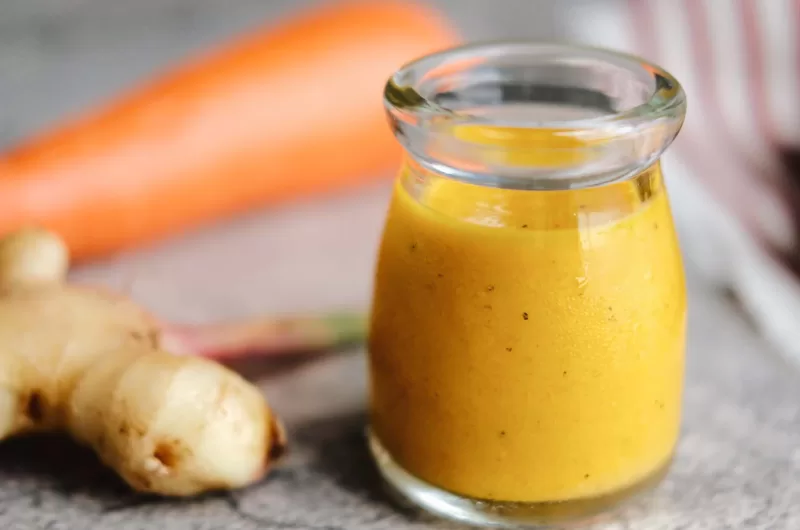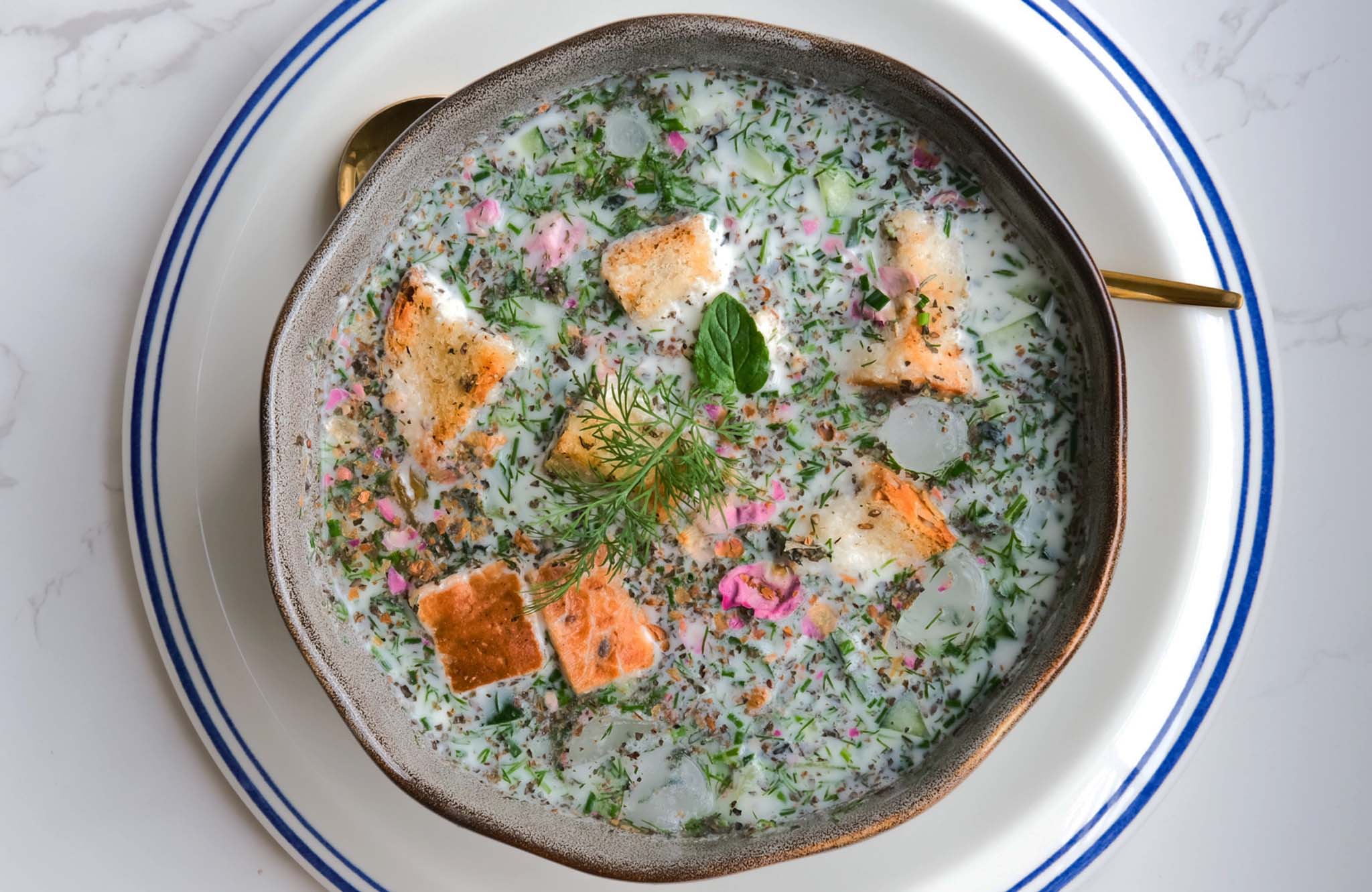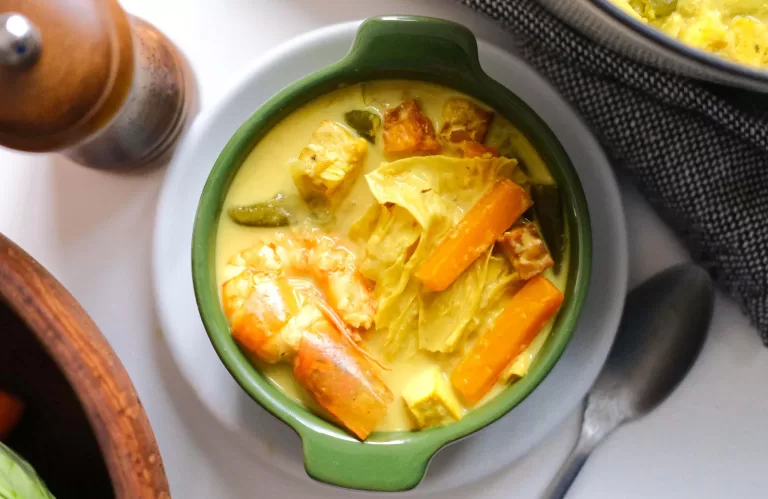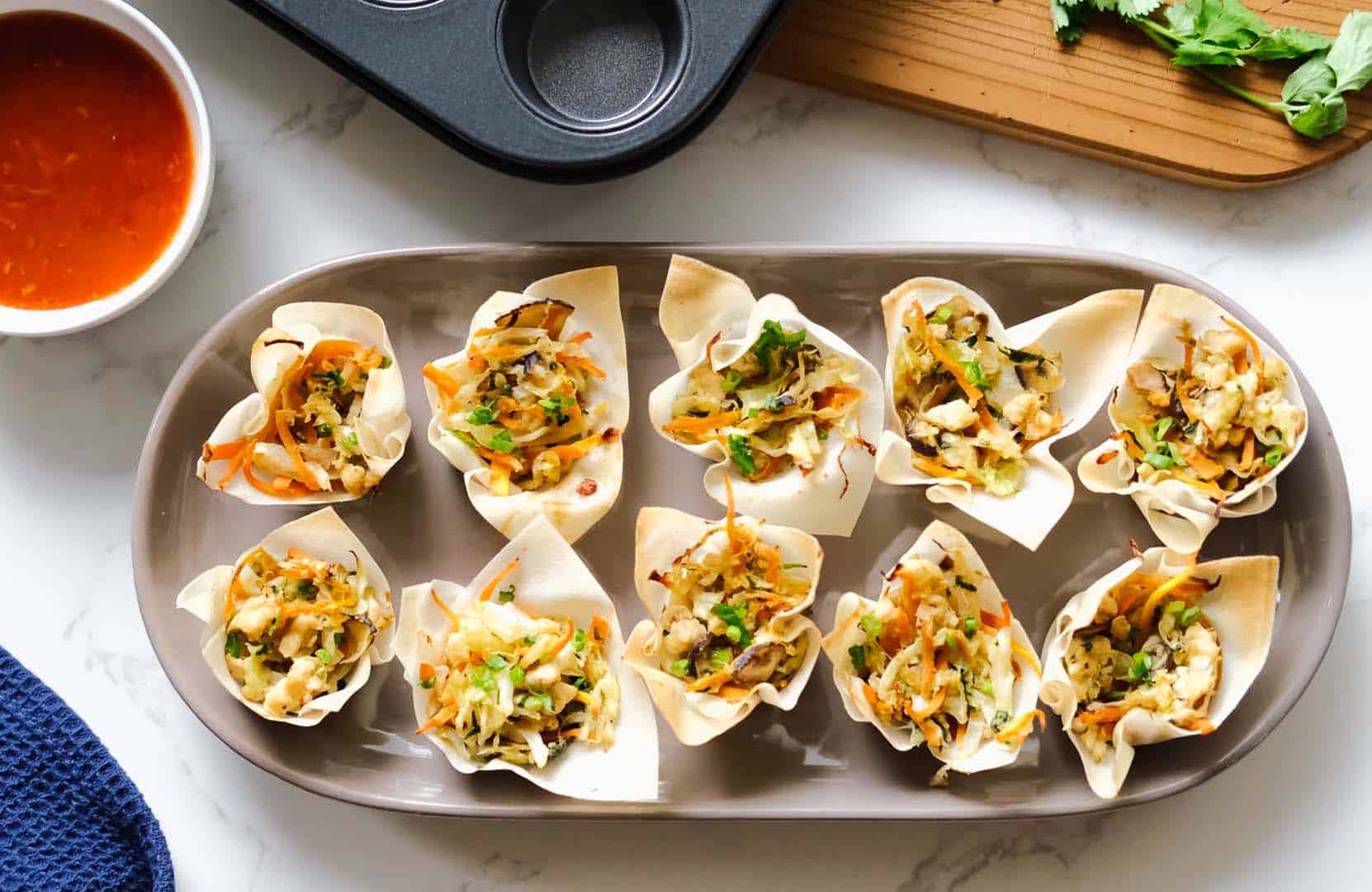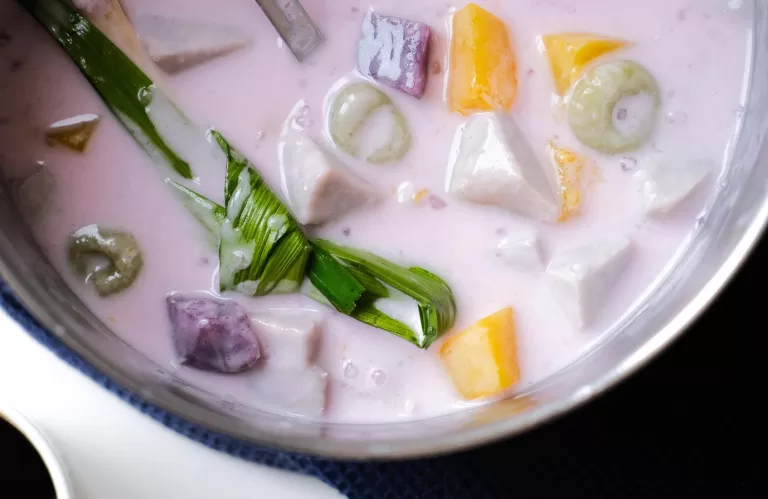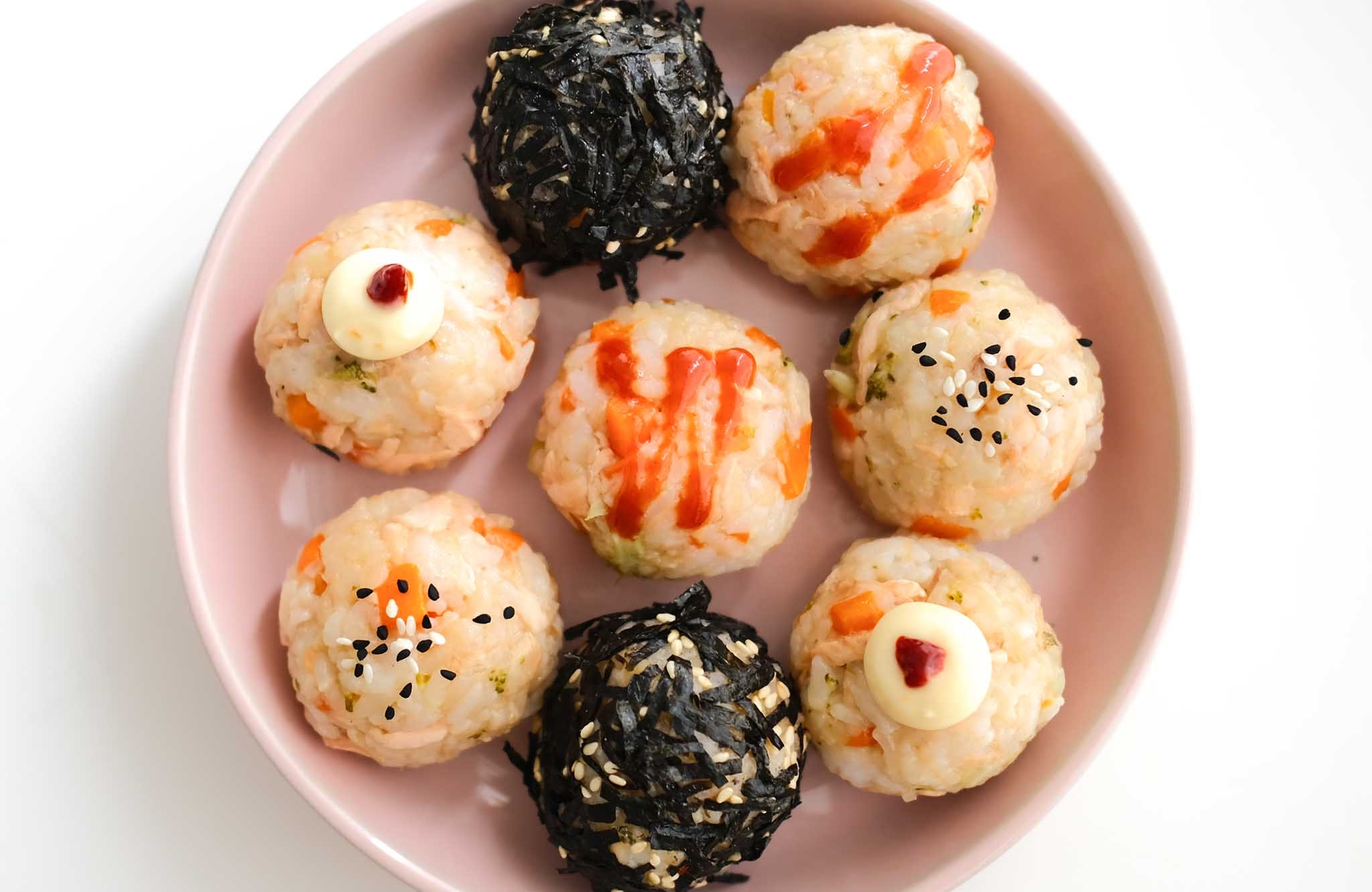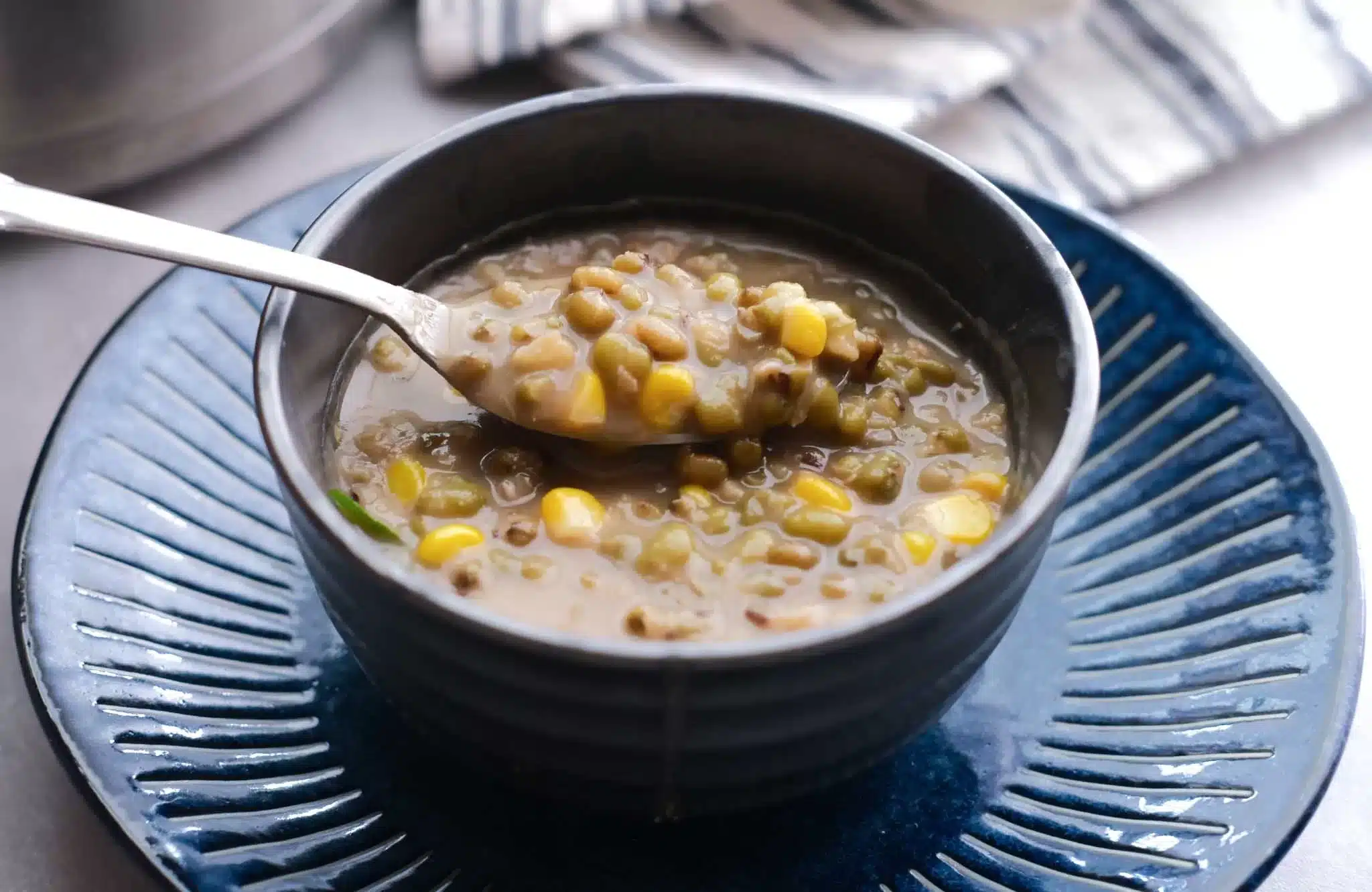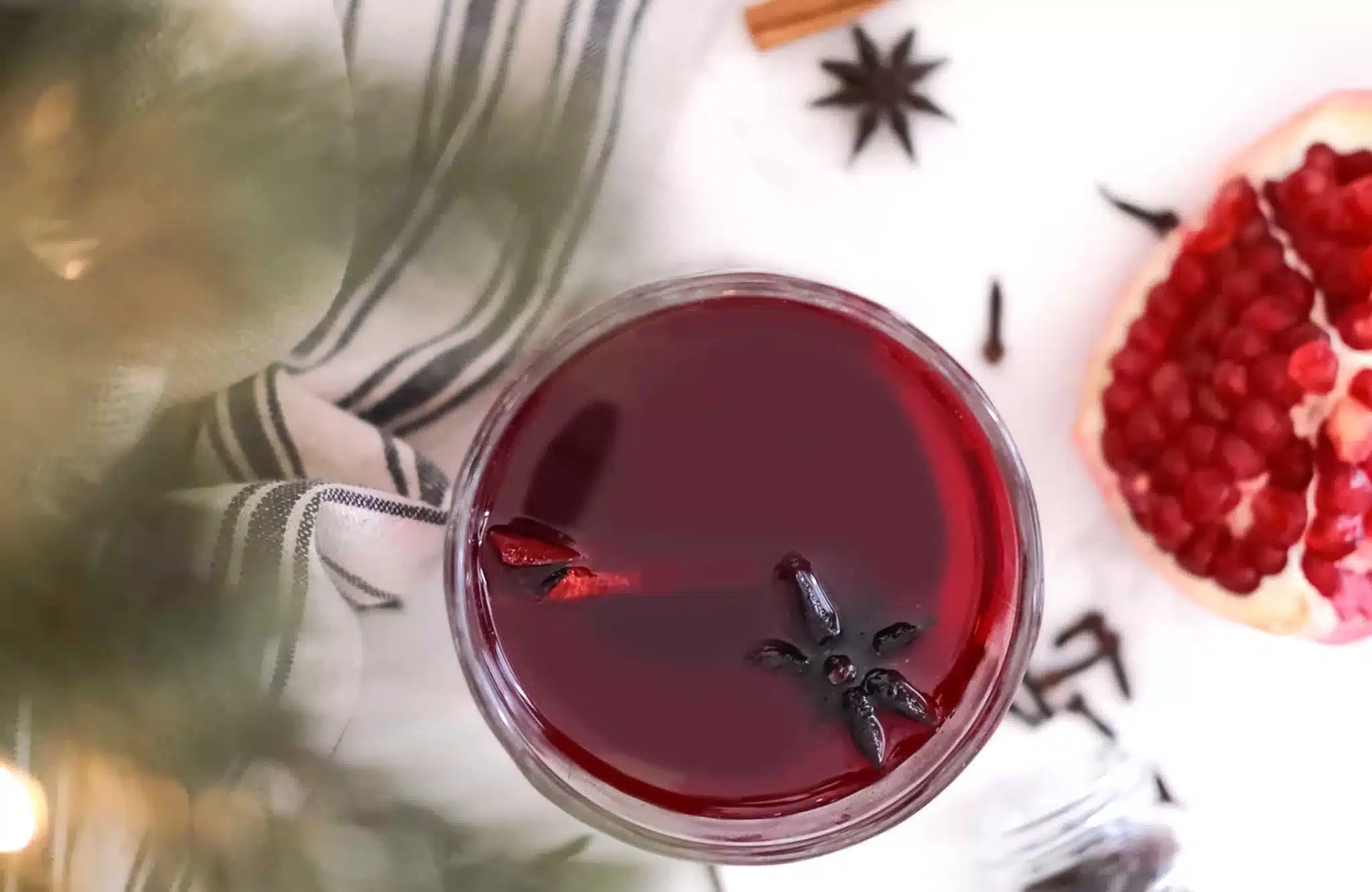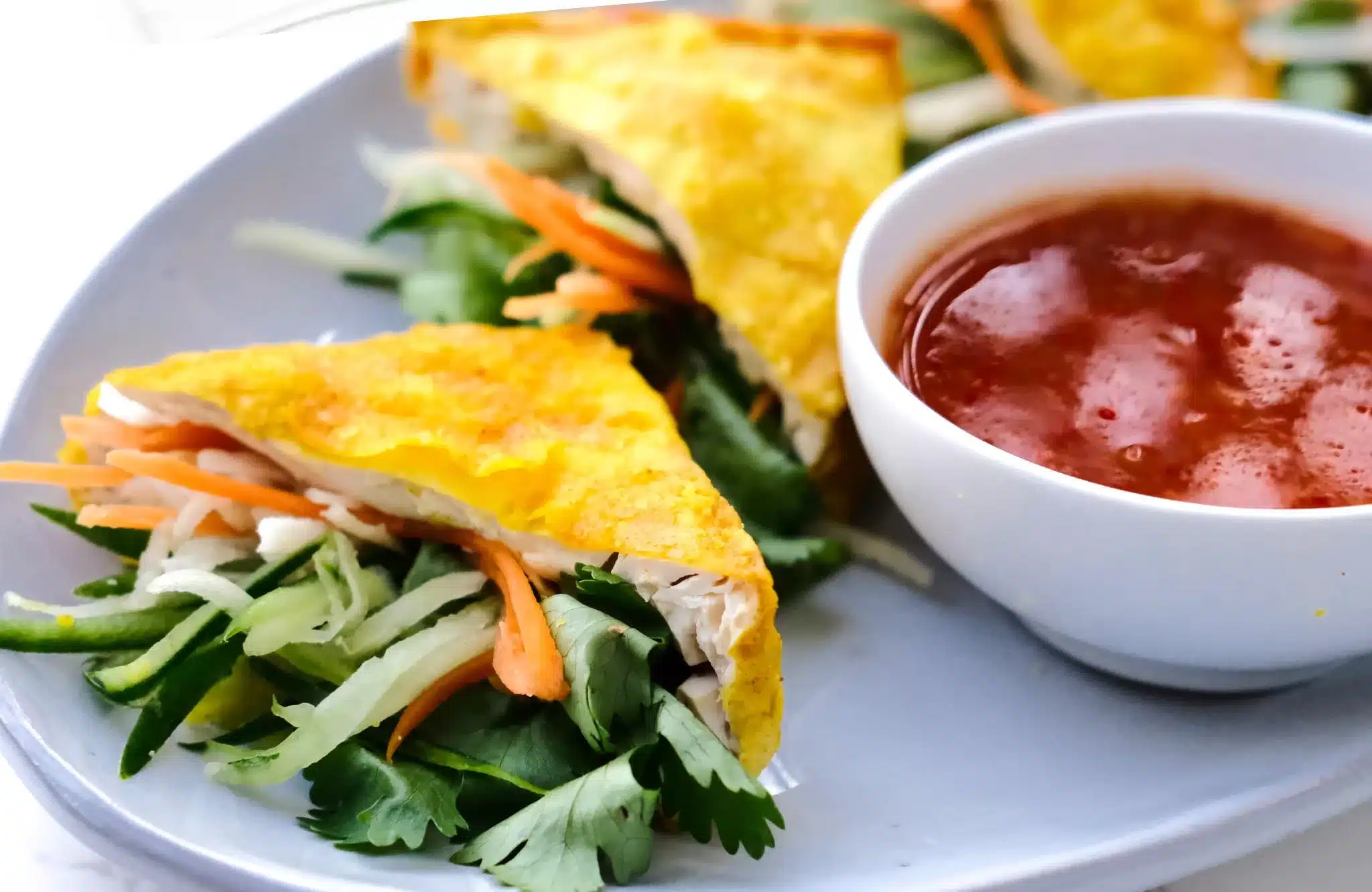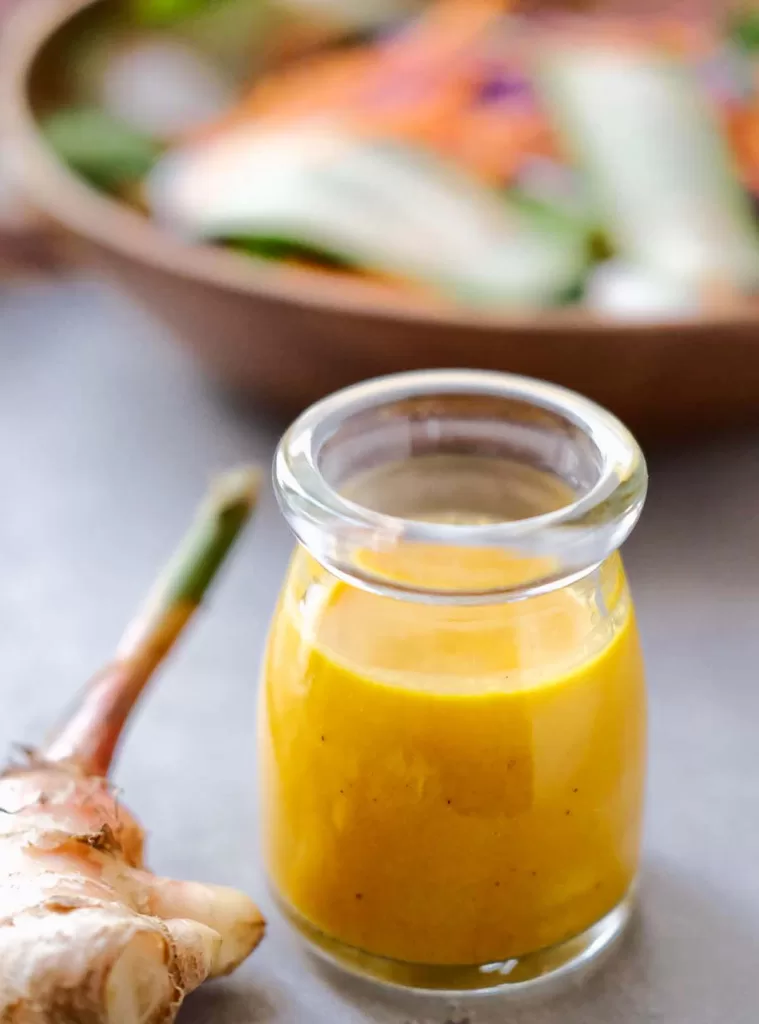
Besides carrots’ anti-inflammatory properties, your skin will thank you for the natural glow from the Vitamin C and Beta-Carotenoid.
In my journey of cutting condiments in my diet to reduce inflammation, I have been making sauces and salad dressings on my own. Surprisingly, making dressings or condiments is easy, where you can toss everything in the blender, blend them, and voila!
Although anyone can make dressing on their own, healthier salad dressings take the right ingredients to come out scrumptiously. You need creativity and openness to mix and match ingredients you love and those that are good for your body.
This tasty carrot and ginger salad dressing helped me increase my green salad intake. The sweetness of this dressing, though, can be addictive, but it complements the bitterness of green salad.
About this Japanese Carrot Ginger Salad Dressing
Using only minimally processed ingredients., this Japanese salad dressing combines carrot, olive oil, vinegar, garlic, and ginger, seasoned with honey, black pepper, salt, sesame oil, and coconut amino (as a substitute for soy sauce). It is refreshing, sweet, and savory, with a slight gingery kick. It’s a great seasoning to add to those bitter vegetables.
The pureed carrot makes this dressing thick with a grainy texture due to the fibrous nature of raw carrot. Giving your jaws a break from all that hard chewing while supplying a healthy dose of beta-carotene.
What is beta-carotene in carrots?
Beta carotene is a compound that makes the carrot orange. When we ingest this compound, our body converts it into Vitamin A. Additionally, beta-carotene is famous for its antioxidant ability to reduce inflammations and fight free radicals that may lead to chronic disease.
Info: Purple or black carrots contain anthocyanins – another potent anti-inflammatory compound also found in berries, beneficial for the heart.
Other vitamins and minerals in 1 medium-sized raw carrot
| Vitamin A (RAE) | 509 mcg |
| Vitamin B6 | 0.084 mg |
| Vitamin C | 3.6 mg |
| Vitamin K1 | 8.1 mcg |
| Potassium | 195mg |
Thanks to its varieties of vitamins and other antioxidant compounds, carrots are beneficial for our eye health, maintain our cholesterol levels, help in weight loss, and may reduce the risk of getting cancer. Read more from this article from Harvard.
Carrots are good for the skin.
Apart from the many health benefits of carrots, one of the reasons I keep carrots as my staple is their benefit to the skin. It has the ability to protect our skin from sun damage, especially if you live in a sunny area or you like getting Vitamin D from the sun. Additionally, carrots can slow the aging process due to their capability to boost collagen production.
Other anti-inflammatory ingredients used for this sauce are ginger and garlic. These are my favorite herbs. They are famous for numerous health benefits and are responsible for making Asian food spicy, aromatic, and delicious.
Ingredients, substitutions, and notes
- 1 Carrot – The main ingredient responsible for the sauce’s thickness. Wash and cut them into cubes before you toss them in a blender.
- Ginger (7g) – I always use fresh ginger, and I recommend using fresh ingredients for this recipe. Lightly scrape the skin with a spoon or knife to peel them before you add them into the blender.
- Garlic (2 cloves) – Garlic is another Asian herb responsible for this sauce’s taste. It also has anti-inflammatory properties like carrot and ginger. I use 2 cloves of fresh garlic in this recipe. I won’t recommend using powder as it greatly influences the pungency of the sauce.
- Vinegar (1/4 cup of apple cider vinegar/rice vinegar) – I use apple cider in this recipe, it gives a stronger vinegar taste, creating a unique combination of taste. Feel free to swap it with rice vinegar for a subtle taste.
- Oil (1/4 cup of extra virgin olive oil) – I use extra virgin olive oil in this recipe to keep it healthy.
- Pure sesame oil – Due to the strong fragrance, you only need a few drops of this oil. Like olive oil, sesame oil also contains unsaturated fatty acids. Make sure to choose the pure version to reap the benefits from these seeds. I use 1 tsp for this recipe, but if you are unfamiliar with the taste, add a few drops and gradually increase the amount according to your preference.
- All-natural coconut amino (1 tsp) – I use coconut aminos as a substitute for soy sauce due to my allergen. It is slightly sweet compared to soy sauce. You may use high-quality, all-natural soy sauce, but if it is a salty soy sauce, reduce the amount of salt by half or omit it entirely.
- Honey (1 tbsp of honey) – Since honey is used as a natural sweetener, try using one with a neutral taste. You may substitute it with other natural sweeteners of your preference, like maple syrup.
- 1 tsp of salt – Reduce the salt if necessary.
- Ground black pepper – This recipe requires only small pinches of black pepper.
The health benefits of ginger and garlic
- Provides anti-inflammatory benefits
- May protect against cellular damage
- May benefit brain health
- May reduce factors of heart disease risk
- May offer benefits for diabetic patient
- Have potential anticancer properties
- May promote a healthy immune response
Read more of this evidence-based article in Healthline
What does this ginger dressing taste like?
This Japanese ginger salad dressing is bursting with flavor. It’s sweet and savory, featuring a slight sharpness from ginger and garlic, complemented by the nutty aroma of toasted sesame. Despite these bold flavors, it is perfectly well-balanced. The texture is uniquely grainy, different from any other sauce you’ve ever tried.
Vegetables to pair with this Japanese ginger salad dressing.
I like to eat this dressing with steamed bok choy, boiled okra, and a combination of lettuce and kale salad. One of the best parts of this dressing is it helps to balance the bitterness of dark green vegetables.
One of my favorite ways to eat this dressing is by tossing it together with cabbage slaws, crunchy cucumber, baby spinach, and peppery radishes. You will get a colorful salad bowl with different essential daily nutrients and a healthy twist of homemade salad dressing as a flavoring.
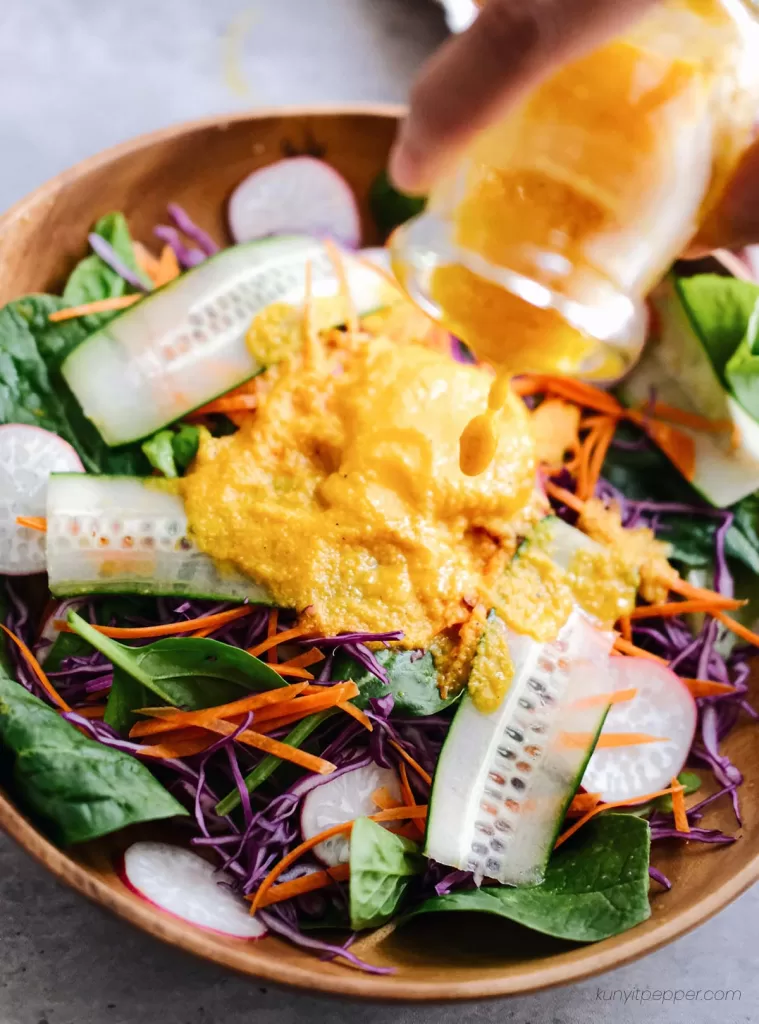
Check my other anti-inflammatory salad dressing.
Japanese ginger salad dressing
200
ml5
minutes691
kcalThis Japanese carrot and ginger salad dressing is refreshing, sweet, and savory, with a slight gingery kick. A great combination for bitter vegetables.
Ingredients
1 larger carrot – peeled and cut into cube
7g of ginger – peeled
1/4 cup of apple cider vinegar/rice vinegar
1/4 cup of extra virgin olive oil
2 cloves of garlic
1 tsp of pure sesame oil – omit if you have an allergy
1 tsp of coconut amino
1 tbsp of honey
1 tsp of salt
1/4 tsp of black pepper
1/4 cup of water – adjust accordingly
Directions
- Combine all ingredients and blend them in a blender or immersion blender until smooth.
- Taste accordingly and add salt or honey if necessary.
- Transfer to an airtight glass jar and keep it in a fridge until you are ready to use.
Recipe Video
Notes
- Note that this salad dressing has a short shelf life due to several ingredients with high water and gas content that can result in spoilage. I suggest keeping them for less than 7 days, as the longer you keep them, the more they might affect the taste quality. Plus, it is best served fresh and chilled.
🥣 Did you try this recipe? Let me know your thoughts in the comment below.


